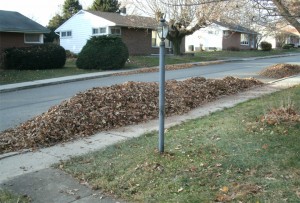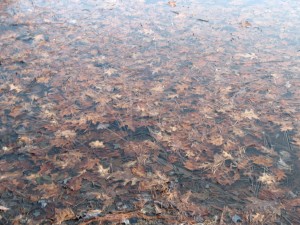One of the pleasures (and occasional curses) of deep familiarity with a book is our tendency to “see” it in other readings. While this tendency may at times make us into so many Procrustes (the mythic Greek blacksmith and (of course) son of a god, who showed his hospitality by stretching or cutting his visitors to fit his guest bed rather than adjusting the other way), more often, it enlivens our readings and adds new visions to them.
Here’s one such mash-up brought to me during recent reading. I wonder if you have the same sort of experience when reading Thoreau?
Thoreau and Bly – What We Drag Behind Us
In A Little Book on the Human Shadow (Harper and Row, 1988), Robert Bly writes about what we express and what we hide as we grow to be our adult selves. Chapter 2 is a short essay entitled “The Long Bag We Drag Behind Us,” and, for me, the image has always made me think of Henry Thoreau and his move to the pond. Bly suggests that, as we grow and decide what parts of us to show, we put the other parts – often those that are socially difficult – in our bags. But, of course, because our bags are full of us, we must take them along wherever we go. It is labor to drag such a bag behind oneself.
Each time I read Walden with students, this image returns to me. There, in 1845, is the 27-year-old Henry Thoreau, building his 10′ by 15′ house in the woods by Walden, and as he works – getting “well pitched” by the “tall arrowy pines” that are becoming this house, another sort of ‘bag’ – he must be thinking about what he will put into it. What will he carry out from town in his cart? How will he furnish it? What, in short, is “necessary?” Who will he be out here?
What Thoreau makes clear in “Economy,” his long stumbling- block of an opening chapter, is that answering these questions carefully is vital to the life that will follow. And so some 60+ pages into the book, he thinks about furnishing his house:
Furniture! Thank God that I can sit and I can stand without the aid of a furniture warehouse. What man but a philosopher would not be ashamed to see his furniture packed in a cart and going up country exposed to the light of heaven and the eyes of men…
And – no surprise – Thoreau goes on to tout a minimalist approach to such possessions. He wants his cart to be light, easy to pull; it is practical advice. But then a shift in imagery and tone arrives, and the reader realizes that Thoreau is – no surprise here, either – intent on making metaphor of his thoughts on furniture:
If you are a seer, whenever you meet a man you will see all that he owns, ay, and much that he pretends to disown, behind him, even to his kitchen furniture and all the trumpery which he saves and will not burn, and he will appear to be harnessed to it…
Here is a version of Bly’s long bag we drag behind us, a mix of possessions and pieces of self that we feel we must have and, at the same time, hide. Such work – this walking and hauling of self out into our own lives.
Perhaps this is what Thoreau means when he nudges himself (and us) toward realization – when we both realize who we are and what choices we have made to become that person. And, in doing so, we make that person real. Perhaps then, we unpack, sell off what we don’t need and set off lighter into our lives.


